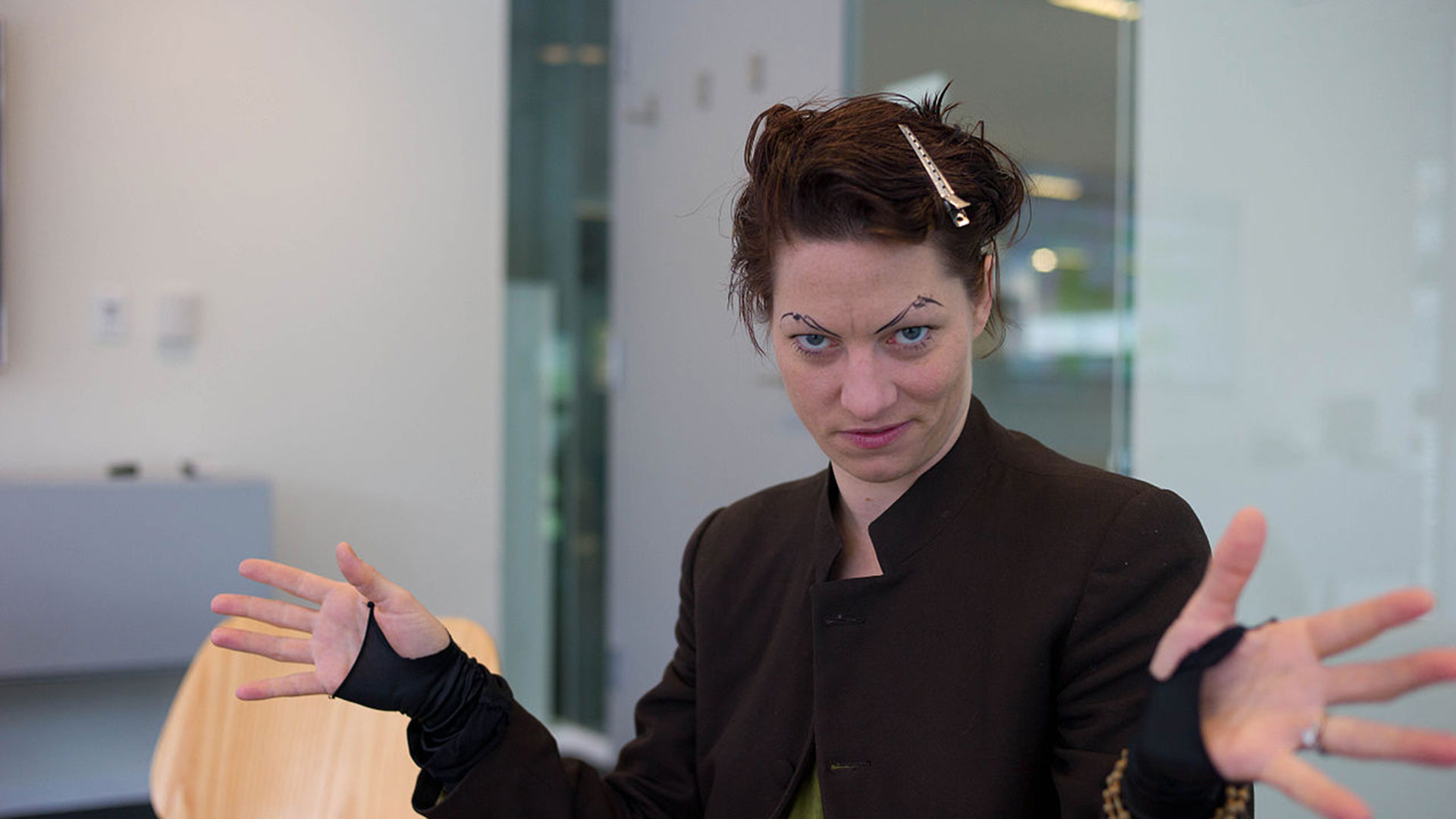When it comes to Amanda Palmer, the conversation often takes a twisty turn into the land of controversy. Her name sparks debates, emotions, and opinions that range from admiration to outright criticism. Amanda Palmer problematic? You betcha. But before we dive into the nitty-gritty, let’s take a moment to understand who she really is and why her actions have stirred up so much buzz in the music industry and beyond.
Picture this: a woman who’s not afraid to break the mold, challenge societal norms, and push boundaries in ways that make people uncomfortable. That’s Amanda Palmer for ya. She’s a musician, a writer, and an artist who’s made waves with her unique approach to creativity and business. But with great power comes great scrutiny, and Amanda hasn’t escaped unscathed from the court of public opinion.
So, why are we talking about Amanda Palmer problematic? Well, buckle up because this ride’s gonna be wild. From her views on art and capitalism to her interactions with fans and collaborators, Amanda’s journey is one filled with both triumphs and controversies. Let’s peel back the layers and see what makes her tick—and why she’s such a polarizing figure in the modern art world.
Table of Contents
- Biography of Amanda Palmer
- Data and Facts About Amanda Palmer
- The Controversies Surrounding Amanda Palmer
- Her Stance on Art and Capitalism
- Relationship with Fans
- Business Practices and Criticism
- Her Musical Career
- Her Writing and Literary Contributions
- Impact on the Artistic Community
- Final Thoughts on Amanda Palmer Problematic
Biography of Amanda Palmer
Amanda Palmer is no ordinary artist. Born on November 19, 1976, in Wilmington, Delaware, she’s carved out a niche for herself as a boundary-pushing performer who’s unafraid to tackle tough topics. Her career began with street performances as “The Living Statue,” where she’d dress in white and paint her face to resemble a ghostly figure. This early start set the tone for her fearless approach to art.
Her music career took off with the band The Dresden Dolls, a cabaret-punk duo that gained a cult following thanks to their theatrical performances and raw, emotional lyrics. After the band’s disbandment, Amanda ventured into solo work, releasing albums like “The Grand Theft Orchestra” and “There Will Be No Intermission.” Her music often explores themes of love, loss, vulnerability, and the human condition.
But Amanda’s life isn’t just about music. She’s also a writer, authoring the critically acclaimed memoir “The Art of Asking,” which delves into her philosophy on art, connection, and community. Through her work, she invites us to rethink how we view art and its relationship with money, labor, and society.
Data and Facts About Amanda Palmer
Let’s get down to the brass tacks. Here’s a quick rundown of Amanda Palmer’s life and career:
| Full Name | Amanda Palmer |
|---|---|
| Date of Birth | November 19, 1976 |
| Place of Birth | Wilmington, Delaware |
| Occupation | Singer, Songwriter, Author |
| Notable Works | The Dresden Dolls, “The Art of Asking” |
| Awards | NPR Best Books of the Year (for “The Art of Asking”) |
These facts paint a picture of a multifaceted artist who’s worn many hats over the years. But what about the controversies? Let’s dive deeper.
The Controversies Surrounding Amanda Palmer
Let’s talk about the elephant in the room: Amanda Palmer problematic moments. There’s no denying that Amanda’s had her fair share of drama. One of the biggest controversies she faced was back in 2012 when she crowdfunded her album “The Grand Theft Orchestra” on Kickstarter. Fans and critics alike questioned her decision to ask for financial support while hiring professional musicians for the project. Many felt it was exploitative, sparking a heated debate about the ethics of crowdfunding in the arts.
Then there’s her stance on tipping. In her memoir, Amanda talks about how she believes in the power of asking and giving freely. However, this philosophy has been criticized by some who argue that it undervalues labor and sets a dangerous precedent for artists. Critics argue that expecting people to work for free or rely on the kindness of strangers isn’t sustainable in the long run.
But it’s not just about money. Amanda’s also faced backlash for her interactions with fans and collaborators. Some have accused her of being dismissive or ungrateful, while others defend her as someone who’s simply honest about the challenges of being an artist in today’s world. It’s a complicated web of opinions, but one thing’s for sure: Amanda’s not afraid to speak her mind.
Her Stance on Art and Capitalism
At the heart of Amanda Palmer problematic discussions lies her views on art and capitalism. In “The Art of Asking,” she challenges the traditional notions of how art should be funded and valued. She argues that art shouldn’t be commodified, but rather treated as a gift that fosters connection and community. It’s a radical idea that resonates with many, but also raises eyebrows among those who worry about the practical implications.
Amanda believes in the power of reciprocity, where artists and audiences engage in a mutually beneficial relationship. She encourages fans to support artists they love, whether through donations, purchases, or simply spreading the word. But critics argue that this approach places an unfair burden on artists, who may not have the resources or networks to sustain themselves in such a model.
It’s a debate that continues to rage on, with both sides presenting valid points. What’s undeniable, though, is that Amanda’s ideas have sparked important conversations about the future of art and its place in society.
Relationship with Fans
Amanda’s relationship with her fans is both a strength and a source of contention. On one hand, she’s known for her openness and willingness to engage with her audience. She’s been known to reply to fan messages, perform impromptu shows, and even invite fans to participate in her creative process. This level of accessibility is rare in the music industry and has earned her a loyal following.
On the other hand, some fans feel that Amanda takes their support for granted. There have been instances where she’s been criticized for not acknowledging contributions or for appearing aloof during live performances. It’s a delicate balance that she’s still navigating, but one that highlights the complexities of maintaining a genuine connection in the digital age.
Business Practices and Criticism
When it comes to business, Amanda Palmer problematic moments often stem from her unconventional methods. Her decision to crowdfund her album, for example, was seen by some as a betrayal of the traditional music industry model. Others praised her for taking control of her career and embracing new technologies to reach her audience.
She’s also been criticized for her use of unpaid interns and volunteers, which some argue perpetuates systemic inequalities in the arts. Amanda defends her choices by emphasizing the value of experience and exposure, but critics counter that not everyone can afford to work for free.
Despite the criticism, Amanda’s business practices have paved the way for other artists to explore alternative revenue streams. Her success on platforms like Patreon and Bandcamp shows that there’s a market for artist-driven content, even if it doesn’t fit the traditional mold.
Her Musical Career
Amanda Palmer’s music is as polarizing as her personality. Her early days with The Dresden Dolls laid the foundation for her signature style: a blend of cabaret, punk, and classical influences. Songs like “Coin-Operated Boy” and “Girl Anachronism” became anthems for fans who appreciated her wit and emotional depth.
As a solo artist, Amanda continued to push boundaries with albums like “The Grand Theft Orchestra” and “There Will Be No Intermission.” Her lyrics often tackle heavy topics like mental health, relationships, and mortality, resonating with listeners who find solace in her vulnerability.
But her music isn’t just about lyrics. Amanda’s live performances are legendary, blending theater, music, and audience interaction in ways that leave a lasting impression. Whether you love her or hate her, there’s no denying that she’s a force to be reckoned with on stage.
Her Writing and Literary Contributions
Writing has become an integral part of Amanda Palmer’s identity. Her memoir “The Art of Asking” is a candid exploration of her life, career, and philosophy on art. It’s a book that challenges readers to rethink how they view creativity, labor, and community. Through her writing, Amanda invites us to embrace vulnerability and imperfection, two qualities she believes are essential for meaningful connection.
Beyond her memoir, Amanda’s also contributed to various publications, sharing her thoughts on topics ranging from feminism to mental health. Her essays and interviews offer glimpses into her mind, providing context for her actions and beliefs.
Impact on the Artistic Community
Love her or hate her, Amanda Palmer’s impact on the artistic community cannot be ignored. She’s challenged norms, sparked conversations, and inspired countless artists to pursue their passions despite the odds. Her willingness to be vulnerable and authentic has resonated with many, proving that art can be both personal and political.
That said, her impact hasn’t been without its downsides. Critics argue that her methods have contributed to a culture of exploitation, where artists are expected to work for free or rely on the generosity of others. It’s a tension that reflects larger issues in the arts, particularly in the age of social media and digital platforms.
Ultimately, Amanda’s legacy will be shaped by how future generations interpret her contributions. Will she be remembered as a trailblazer who dared to challenge the status quo, or as a figure whose methods ultimately harmed the very community she sought to uplift? Only time will tell.
Final Thoughts on Amanda Palmer Problematic
So, what’s the verdict? Is Amanda Palmer problematic? The answer, like her art, is complex. She’s a woman who’s unafraid to challenge conventions, but whose methods have sparked both admiration and criticism. Her journey is a testament to the power of art to provoke, inspire, and transform.
If you’ve made it this far, I’d love to hear your thoughts. Do you think Amanda’s approach to art and business is revolutionary, or do you see her methods as problematic? Leave a comment below or share this article with a friend who might enjoy the conversation. And if you’re hungry for more, check out some of our other articles on topics that matter to you.
Remember, art is about connection, and connection is about conversation. So let’s keep the dialogue going and see where it takes us. Cheers!



Detail Author:
- Name : Mrs. Leslie Corwin
- Username : mckenzie.scot
- Email : alexa77@gmail.com
- Birthdate : 1973-06-09
- Address : 694 Alexane Estates North Justuschester, CO 67600
- Phone : (959) 707-0604
- Company : Eichmann Inc
- Job : Appliance Repairer
- Bio : Necessitatibus ut impedit qui atque. Nisi commodi est suscipit cumque corrupti aut. Maxime nihil quis earum accusamus.
Socials
linkedin:
- url : https://linkedin.com/in/margarettrantow
- username : margarettrantow
- bio : Qui qui nobis dolorem tempore et.
- followers : 2984
- following : 2007
tiktok:
- url : https://tiktok.com/@margaret_trantow
- username : margaret_trantow
- bio : Et aut corporis repellat aut. Eum rerum ut laudantium non.
- followers : 2221
- following : 2666
instagram:
- url : https://instagram.com/margaret_xx
- username : margaret_xx
- bio : Deserunt vel quia saepe doloribus omnis nesciunt beatae et. In dolorem non consequatur incidunt at.
- followers : 899
- following : 1626